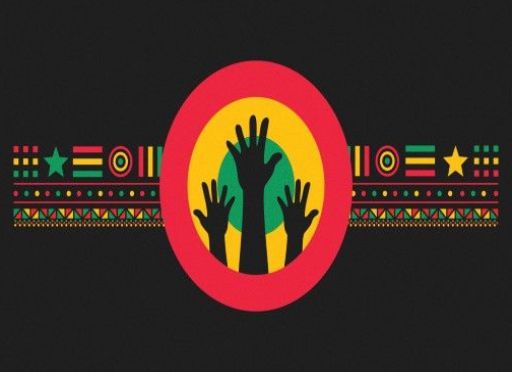Pulitzer Prize-winning reporter Les Payne and his daughter and researcher Tamara Payne present a spellbinding, detailed, rewarding biography of Malcolm X.

Malcolm X in His Time
Les Payne, the founder and former president of the National Association of Black Journalists, was a Pulitzer Prize-winning reporter, a Newsday editor and a syndicated columnist. Co-author Tamara Payne, his daughter, was his principal researcher and, after his death, she completed this comprehensive, evocative biography of Malcolm X, winner of the 2020 US National Book Award for Nonfiction.
Their exhaustively researched saga offers a vivid portrait of Malcolm X and his turbulent era. The Payne’s abundance of material – including a trove of new information, such as insight into Malcolm X’s meeting with the Ku Klux Klan – never impedes their narrative’s dramatic flow. This intricate, dynamic portrait of one of American history’s most complex, fascinating and controversial figures proves constantly readable and illuminating.
NPR named this one of the Best Books of 2020, as did Time magazine, The Washington Post, Library Journal, O: The Oprah Magazine and other outlets. Mark Whitaker, writing in The Washington Post, said, “Fascinating and essential…. [Payne] adds invaluably to our understanding of Malcolm’s story.” Michael P. Jeffries wrote in The New York Times Book Review, “Nobody has written a more poetic account…we are exposed to Malcolm’s teachings within the rhythm of Payne’s masterly storytelling.”
Malcolm Little
The Paynes begin with Earl and Louis Little, settling in Omaha, Nebraska – where their son Malcolm Little was born – as part of the “Great Migration,” during which hundreds of thousands of Black southerners moved to northern and western cities, as recounted in Isabel Wilkerson’s brilliant The Warmth of Other Suns.
The Littles, followers of the racial-uplift philosophy of Marcus Garvey, taught their children self-sufficiency, independent thinking and bold racial pride.
The terror generated by the Omaha lynching, as well as hundreds of other atrocities, had the intended effect of creating an indelible sense of fear and anger…during the 1920s.Les Payne and Tamara Payne
The Paynes explain that the family moved from Omaha to Michigan to escape the Ku Klux Klan (KKK). When Little was six, his father died in a street-car accident, or that is what the family called it. Malcolm Little always believed the Klan murdered his father. Shortly after Earl’s death, Louise Little entered the psychiatric ward at Kalamazoo State Hospital. The court sent Malcolm, who was in constant trouble with the law, to live with a white family who owned a boarding house. He thrived there and began to do well in school.
Then, the Paynes describe a heartbreaking turning point: Malcolm Little, then an eighth-grader, confided his higher ambitions to a white teacher. The teacher used a racial slur and told him to forget his dreams because he could not achieve them. He dropped out of school, and moved to the home of a half-sister in Boston.
Malcolm X
The Paynes tell the street-life saga of Malcolm Little – how he gravitated toward Boston’s nightlife and jazz clubs, making a living by shining shoes and running drugs and prostitutes. Little became a burglar, got arrested and received a lengthy prison sentence.
The Paynes cover his life in jail, showing him studying and taking an English correspondence course. He came to regard knowledge and language as weapons for winning respect.
Then, in a crucial moment, while still imprisoned Malcolm Little learned about an American version of the Muslim religion – the Nation of Islam, a Black-oriented variant that mixed Muslim religious mysticism with Marcus Garvey-style racial uplift. Its leader, Elijah Muhammad, taught that whites were exploitative evil “blue-eyed devils.” Nation of Islam members, the authors explain, adopted the surname “X,” to symbolize the African names taken from their ancestors when they became enslaved. Malcolm Little became Malcolm X.
Nation of Islam
Malcolm X gained parole and became a minister at the Nation of Islam’s Temple No. 1 in Detroit. The Paynes bring you into that setting as the charismatic Malcolm X won many converts. In 1954, he became the minister at Harlem’s Temple No. 7 and settled in Queens, New York.
Malcolm X’s high profile stoked envy and suspicion among the Nation of Islam’s leaders and, the Paynes discovered, they drew the attention of FBI director, J. Edgar Hoover, who saw Malcolm X and the Nation of Islam as threats to white supremacy. The Paynes make a crucial historical distinction: Malcolm X’s messages stood in stark contrast to the Rev. Martin Luther King, Jr.’s calls for peaceful protests.Most notably, as the Paynes show, Malcolm X sought a “separate Black state.”
Ku Klux Klan
Among the many surprising discoveries the Paynes unearthed, nothing equals their astonishing revelation that Elijah Muhammad instructed Malcolm X to meet with Ku Klux Klansman W.S. Fellows.
Only toward the end of his life, after ridding himself of the ‘blind faith’ hold of his cult leader, did Malcolm view the Klan sit-down as a shameful breach of his own better judgment.Les Payne and Tamara Payne
The Paynes contend that Elijah Muhammad wanted the Klan’s help to obtain land for a separate Black state. The Klan sought help from the Nation of Islam to assassinate Rev. King. The authors paint Malcolm X as revolted by these meetings; he refused to aid the Nation’s plot with Klan.
The Break
The Paynes demonstrate that the “Royal Family” – Elijah Muhammad’s relatives – ostracized Malcolm X. When Muhammad heard Malcolm X’s famous comment on President John F. Kennedy’s assassination – “the chickens coming home to roost” – Muhammad suspended Malcolm X from preaching.
On his travels to the Middle East and Africa, Malcolm X was surprised to see good relations between whites and nonwhites. Startled, he shifted from believing in the irredeemable evil of whites and, instead, proposed that racism was a symptom of the capitalist system. Malcolm X condemned Elijah Muhammad and the Nation of Islam, exposing the group’s ties with white supremacists.
At its core, Malcolm’s message spoke to people of every rank: White people are not superior, and Black people are not inferior.Les Payne and Tamara Payne
Muhammad ordered Malcolm stopped, and – as the Paynes recount in gripping detail – Nation of Islam assassins shot and killed him on the stage of the Audubon Ballroom in Harlem on February 21, 1965.
Significant Historical Figure
Malcolm X’s social influence seems to have only increased since his assassination. He remains a mythical American and much admired. The Paynes present his life in granular detail without ever diminishing the drama of his time or his admirable moral courage. Nor do they try to paint him as a pure hero. Malcolm X had many internal contradictions, and the Paynes strive to present them all. Theirs is an exemplary biography.
Readers compelled by the Paynes’ extraordinary journalism to learn more about Malcolm X and his times will want to read The Autobiography of Malcolm X by Malcolm X writing with Alex Haley, author of Roots.









